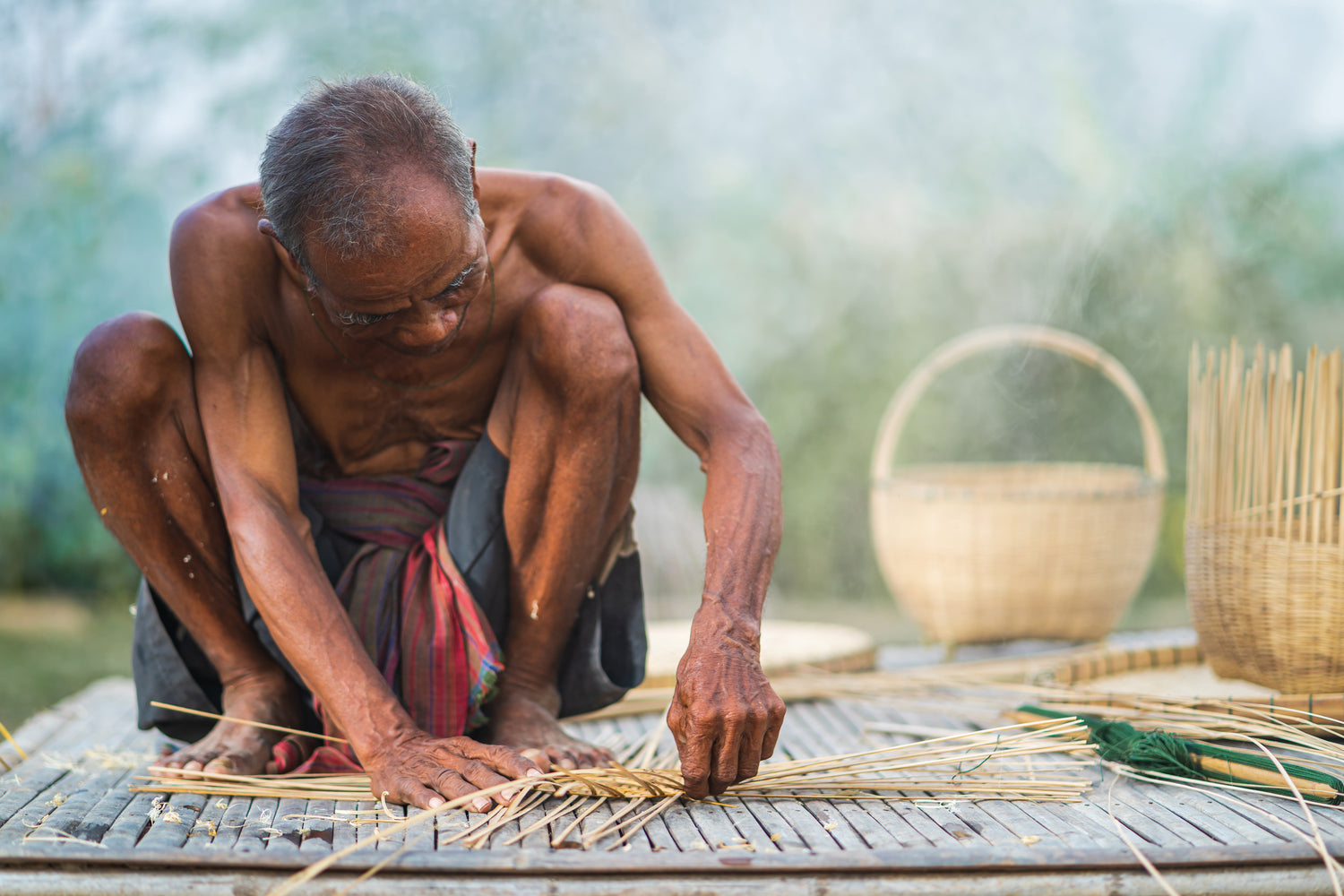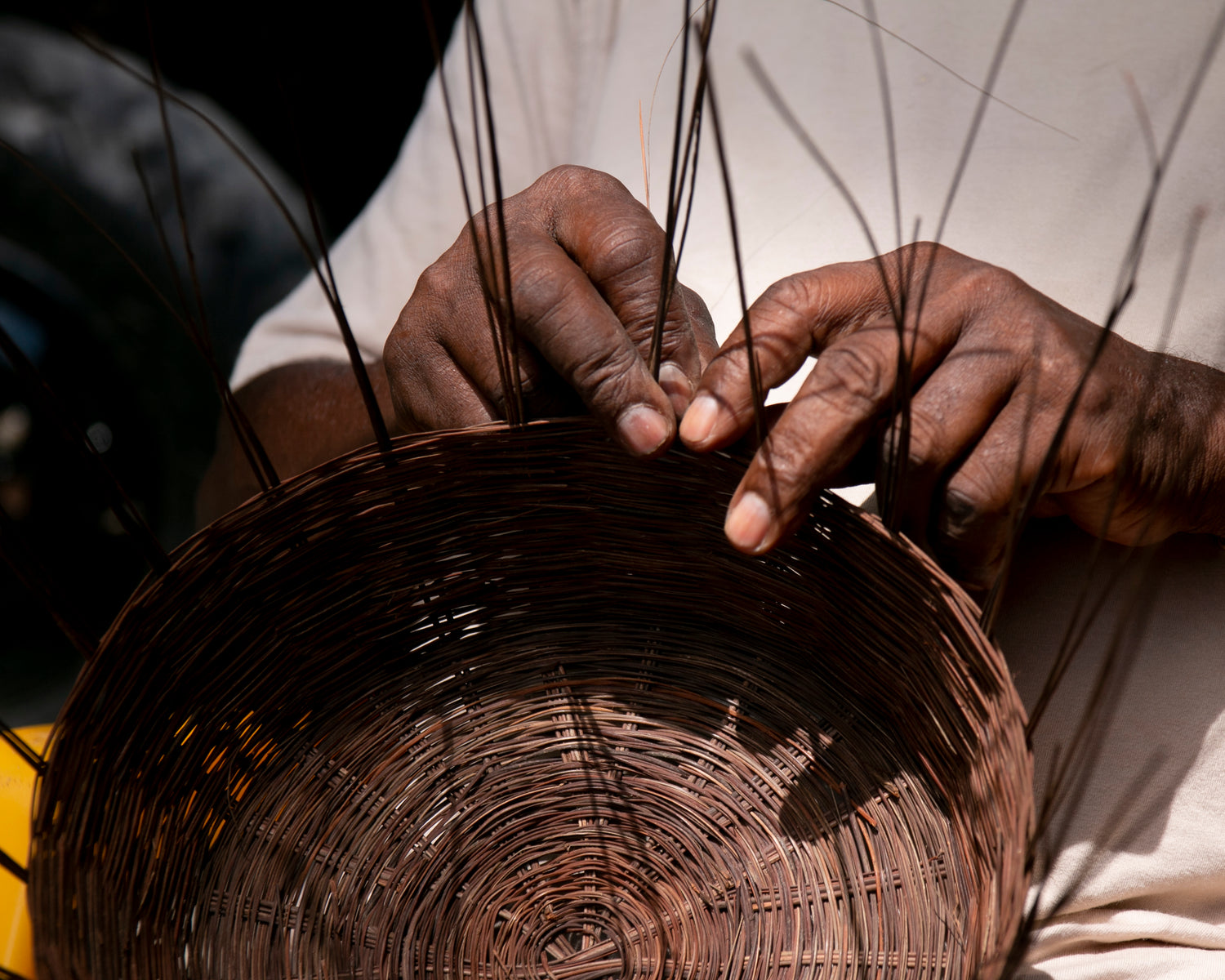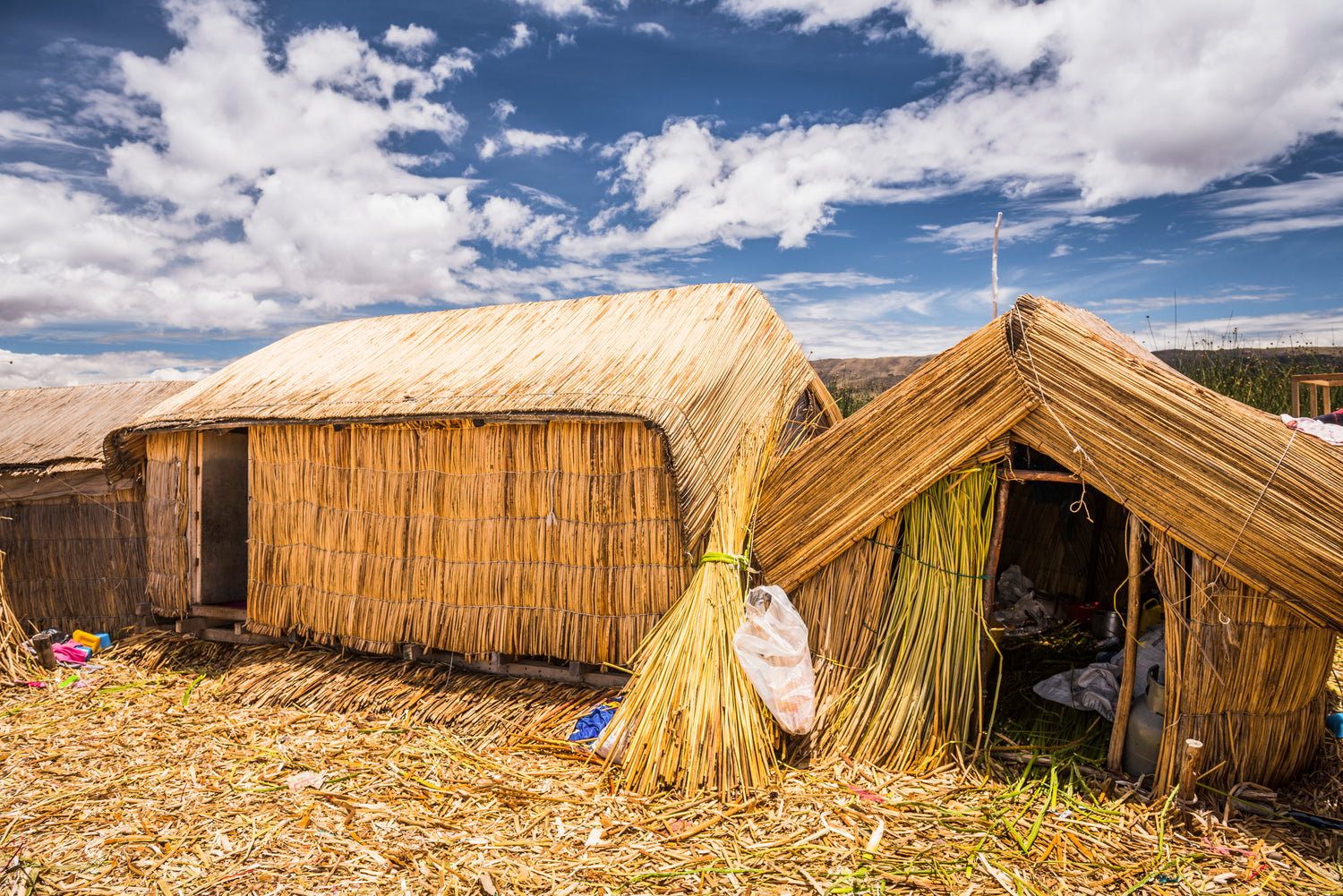শিল্পই জীবন — Craft is Life
The Living Legacy Behind Daroonjinish

"হাতের কাজ, মনের ভাষা।"
"The work of the hands is the voice of the soul."
Walk through the sun-baked villages of Bengal, and you’ll hear it—not with your ears, but in the rhythm of hands coiling grass, the soft creak of palm-pressed ropes, the quiet patience that weaves resilience into form. This is Sabai basketry—not a product, but a practice. Not a trend, but a testament to survival, memory, and quiet mastery.
At Daroonjinish, we don’t just feature natural materials—we live it, through the people who turn wild into wonder. They don’t follow design trends. They follow the texture of tradition, passed down like a sacred rhythm between generations. Grass is dried, softened, dyed in earthy hues, then slowly, intentionally shaped into baskets that hold more than utility—they hold identity.

“ঘাসটা বুনলেই শুধু বাস্কেট হয় না—ওতে সংসার থাকে।”
"It’s not just grass that we weave into a basket—it’s a way of life."
The artisans who do this work have grown up in the shadows of fields where nature sways wild in the wind. They know how it feels underfoot after rain, how it dries best under soft sun, how a loop that’s too tight won’t last the years. Their craft is not a skill—it’s a language. A way of narrating ancestral memory, personal pride, and quiet rebellion against disappearance.
And yet, these are not stories told aloud. They are whispered into every coil, every curve.
They are the unseen signatures behind what you hold.
Daroonjinish exists because of them—not just as hands that work, but as hearts that hold the soul of Bengal. We sit with them. We co-design with them. We rethink, rework, and revise until each basket not only looks beautiful—but feels like it has a home to belong to.

“আমার বাবার হাতে যেমন টোকা ছিল, এখন ছেলের হাতেও সেই টোকা দেখি।”
“The rhythm that lived in my father’s hands—I now see it in my son’s.”
There are no shortcuts here. No mass production. No forgotten credits. Only time, care, and craft, stitched together with purpose. These are not just craftspeople. They are storytellers, carrying forward not just skills, but memory.
Their work is slow because it’s thoughtful. Their pace is measured because it honors tradition.
So when you hold a Daroonjinish product—know that you are holding more than a basket or a bag. You are holding a village’s pride, a family’s future, and a generation’s inheritance.
This is not just basketry.
This is Bengal, braided.
This is craft that speaks, even when the world forgets to listen.
